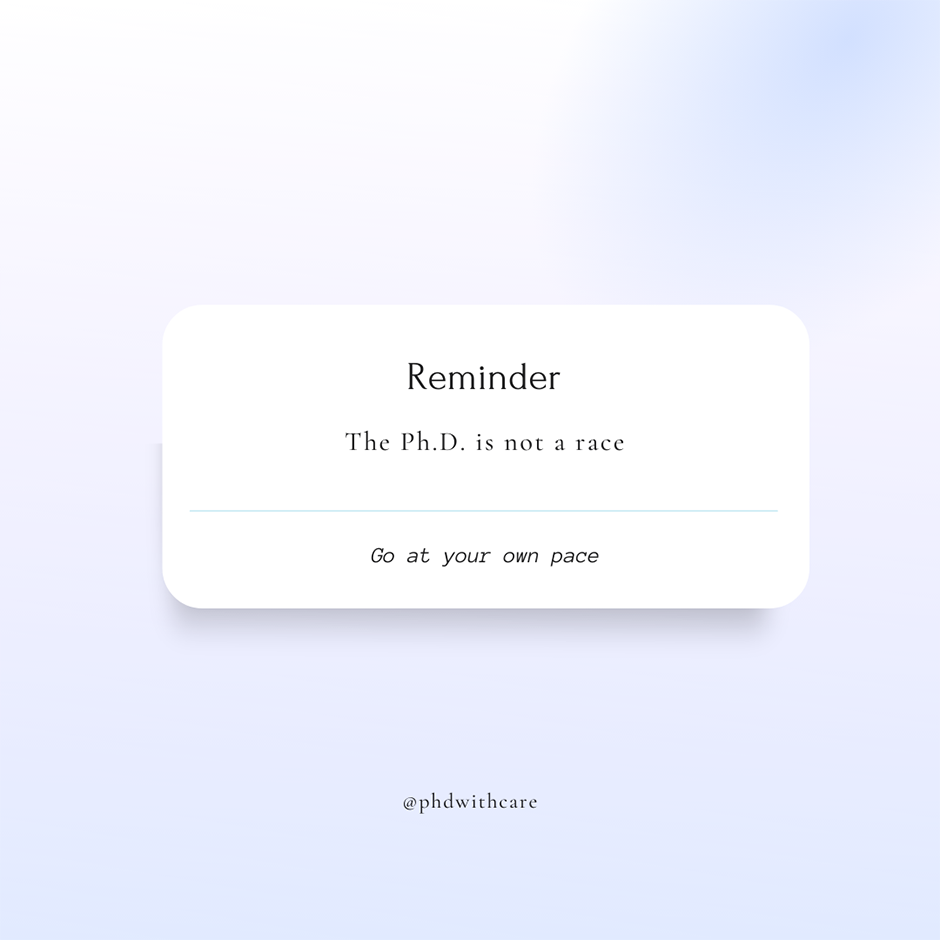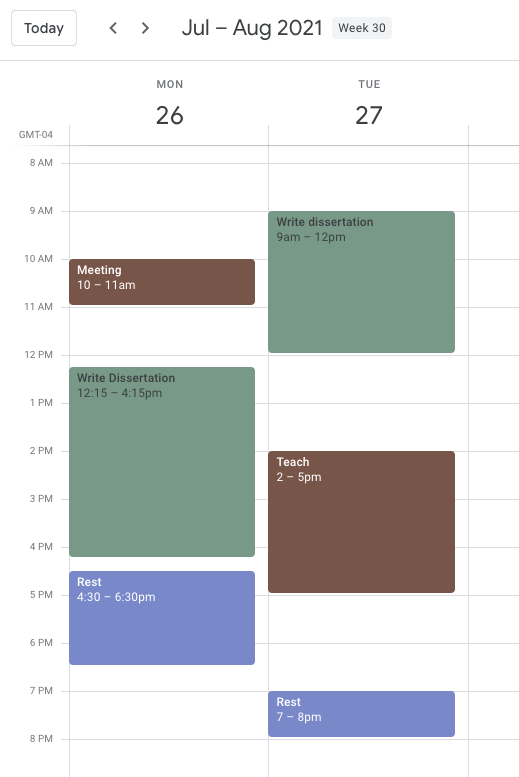When I realized this rhythm wasn’t working for me, I started looking for ways to improve my work-life balance and regain my self-worth. I found tools such as the Pomodoro method that helped me organize my work in ways that made me feel like I was making progress. However, while tips on how to build an effective work routine proliferate in academic networks, I found little to no information about rest except the usual recommendation to take care of yourself. The thing is, in this culture of overwork and productivity, rest is treated as something we should deserve rather than a necessity. To rest is seen as a weakness, or a sign that we’re not devoted enough when it should actually be part of our academic routine.
Indeed, rest is not only necessary if we want to avoid a burnout it is also an essential part of intellectual reflection. Academic work demands deep thinking that requires time. Instead of being the price for “good” academic work, rest should be built into our academic practice as a time and space where we allow ourselves to breathe, reflect, and assimilate information -- the simmering process of academic thinking. When you make a stew, you don’t throw in all of the ingredients expecting the flavours to impregnate each other immediately. Instead, you bring it to a boil and let it cook until everything is well combined. Same goes for intellectual reflection. How can we expect our thoughts to make sense if we don’t let them sit and rest?
Building a Rest Practice
Once I made this realization, I started to book rest time in my calendar the same way I would book meetings and work sessions. I have the privilege to be able to take my weekends off and so I do. I also have a strict rule that I am not allowed to work during the evening. Since I started doing this, I am more focused on my tasks, I am less distracted by all of the other things I wish I was doing, and my ideas are much clearer. On Sundays, I am actually excited to start a new week and get back to my work.


 Summer sky I captured during my last vacation in Bromont, Québec.
Summer sky I captured during my last vacation in Bromont, Québec.
 Me pretending to work, as I like to do.
Me pretending to work, as I like to do.
 One of my latest Instagram posts reflecting on time and the PhD
One of my latest Instagram posts reflecting on time and the PhD  Time-blocking rest is a good strategy to keep yourself accountable.
Time-blocking rest is a good strategy to keep yourself accountable.
